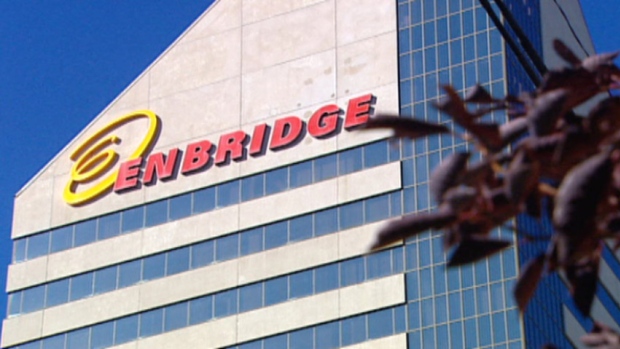Pipeline Giant Enbridge Targets Expanding Offshore Wind Investments in France, Steers Clear of Troubled U.S. Market
(Reuters) — Canadian pipeline company Enbridge is keen on further offshore wind investments in France, but will avoid the United States, where cost and supply chain problems have contributed to offshore projects collapsing, a senior executive said.
Rising costs have led to canceled projects in the U.S. and Britain while putting others at risk. The setbacks for offshore wind may undermine countries' targets to cut emissions from power generation.
Enbridge, whose main business is transporting North American oil and natural gas, has a small renewable power business that makes up 3% of its earnings before interest, taxes, depreciation and amortization (EBITDA).
Renewables' share of Enbridge's earnings will expand as the company invests C$1 billion in capital annually, said Matthew Akman, Enbridge's president of power.
"There will be big (offshore wind) opportunities for us of the billions of dollars in the future still in Europe," Akman said in an interview. "But the timing is uncertain. It could be soon because we might see the current issues settle up quickly and it could take years."
France is the focus of Enbridge's interest because the company already has a strong partner, state-owned EDF Group, and because wind properties come with 20-year agreements to sell power to the government at prices that escalate with inflation, Akman said.
European projects that Enbridge partly owns have capacity to produce 1.5 gigawatts (GW), while three projects under construction will add another gigawatt. Three other projects in development could add 2.6 GW, more than doubling capacity.
Enbridge plans to participate in the next three French offshore wind tenders this year and is "very optimistic" about further investments, Akman said, given the French government's plans to increase offshore wind and corporate emissions targets.
Enbridge is not, however, considering investing in U.S. offshore wind projects where supply chain constraints are acute and power transmission bottlenecks pose problems, Akman said.
"I do believe that offshore wind will be a significant contributor to the U.S. northeast energy mix over time, but it's going to take longer than everyone thought," Akman said.
Progress on developing U.S. offshore wind farms slowed in 2023 after offshore developers canceled contracts to sell power in Massachusetts, Connecticut and New Jersey, and threatened to cancel agreements in other states. European energy companies Orsted, Equinor and BP took a combined $5 billion in writedowns on U.S. projects.
Enbridge will continue investing in onshore wind and solar in the United States to sell energy to the oil and gas industry, Akman said. The first phase of its solar project with EDF in Ohio has begun operation, Enbridge said on Wednesday.
Related News
Related News

- Keystone Oil Pipeline Resumes Operations After Temporary Shutdown
- Freeport LNG Plant Runs Near Zero Consumption for Fifth Day
- Biden Administration Buys Oil for Emergency Reserve Above Target Price
- Mexico Seizes Air Liquide's Hydrogen Plant at Pemex Refinery
- Enbridge to Invest $500 Million in Pipeline Assets, Including Expansion of 850-Mile Gray Oak Pipeline





Comments